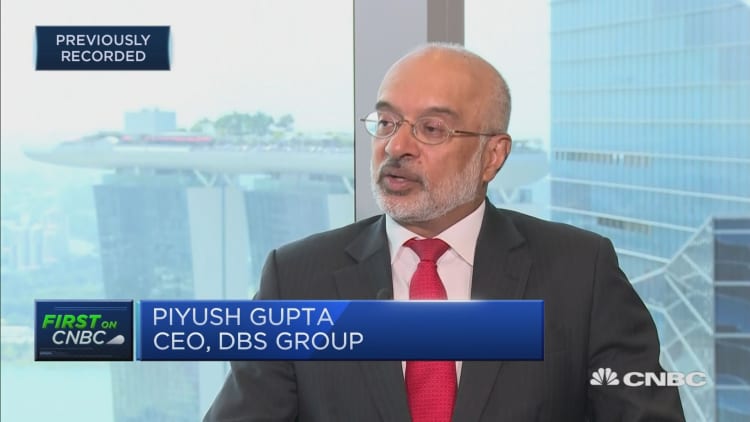Singapore's economic growth rate for the year could realistically come in at just 1.5%, a Moody's Analytics economist predicted on Monday.
Steve Cochrane, chief Asia Pacific economist for the Moody's subsidiary, said gross domestic product growth could be 1.5% to 2% for the city-state, but the lower end was "more realistic."
If his prediction were to come to pass, that would fall into the bottom of the Singapore government's forecast for 1.5% to 2.5% full-year GDP growth.
Singapore is often viewed as a bellwether for the global economy's health. That's because foreign trade accounts for a large proportion of the city-state's GDP. In 2018, the World Bank estimated Singapore's exports were worth 176.4% of its GDP. If trade in Singapore is weak, it suggests falling demand and economic growth in other countries.
Cochrane described his prediction for GDP growth as "below potential" for Singapore: He cited a 2.5% to 3% rate as ideal for long-term growth.
Cochrane's prediction came alongside DBS CEO Piyush Gupta's comments that Singapore would see approximately 1% in GDP growth. "Our own projection is that the full-year GDP is likely to be closer to 1% than to 0%," Gupta told CNBC Monday.

There are some bright spots, however, including Singapore's pharmaceutical industry creating opportunities for the economy, according to Cochrane.
"Pharmaceuticals ... are growing fairly well, notwithstanding some bumps in the road. (It's) a high-value-added industry that actually, I think, creates some good potential for the Singapore economy going forward," Cochrane said.
He also said there was a "good chance" an upswing in the pharmaceutical industry could prevent a technical recession, which analysts cautioned might happen in 2020.
Average compound annual growth in pharmaceutical spending in Singapore was at 6% from 2013-2017, and is projected to increase to 6.1% in 2018-2022, according to a 2018 report from The Economist Intelligence Unit.
A promising outlook for Singapore's pharmaceutical industry is coupled by a "pretty good" domestic economy, according to Cochrane.
He said, "Real estate markets are steady, the housing market looks like it's stabilized … If the labor market can continue to remain steady and domestic demand is steady as well, we might avoid a technical recession."

